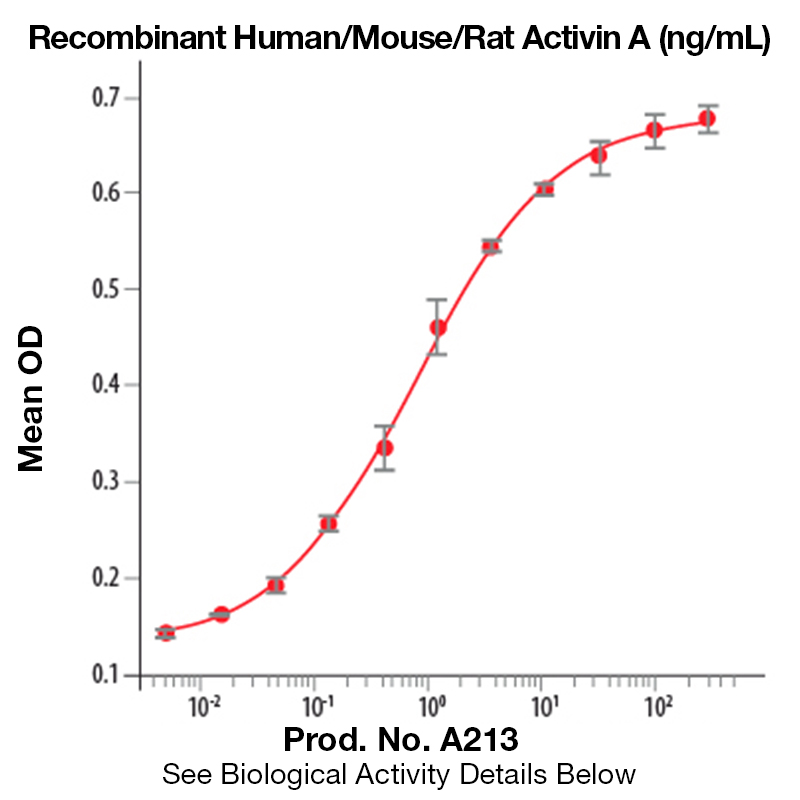Recombinant Human/Mouse/Rat Activin A
Product Code:
LEI-A213
LEI-A213
Host Type:
Mixed
Mixed
Regulatory Status:
RUO
RUO
Shipping:
Ambient
Ambient
Storage:
This lyophilized protein is stable for up to twelve months when stored desiccated at -20°C to -70°C. After aseptic reconstitution this protein may be stored at 2°C to 8°C for one month or for up to three months at -20°C to -70°C in a manual defrost freezer. Avoid Repeated Freeze Thaw Cycles. See Product Insert for exact lot specific storage instructions.
This lyophilized protein is stable for up to twelve months when stored desiccated at -20°C to -70°C. After aseptic reconstitution this protein may be stored at 2°C to 8°C for one month or for up to three months at -20°C to -70°C in a manual defrost freezer. Avoid Repeated Freeze Thaw Cycles. See Product Insert for exact lot specific storage instructions.
No additional charges, what you see is what you pay! *
| Code | Size | Price |
|---|
| LEI-A213-10ug | 10 ug | £512.00 |
Quantity:
| LEI-A213-50ug | 50 ug | £1,274.00 |
Quantity:
| LEI-A213-500ug | 500 ug | £6,372.00 |
Quantity:
Prices exclude any Taxes / VAT



